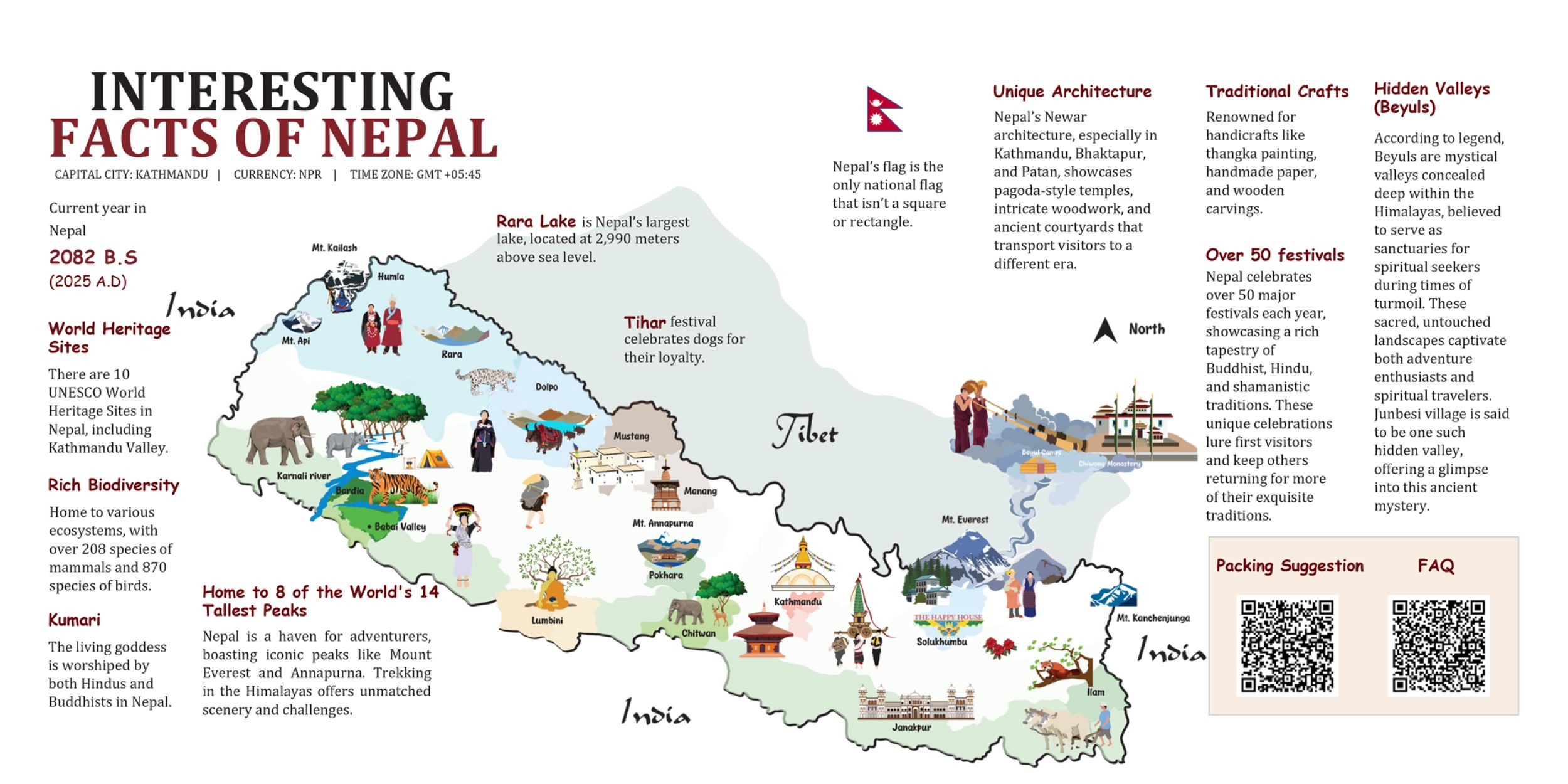
Frequently Asked Questions
Are visas required for entry into Nepal?
How to get here?
Tribhuvan International Airport, Kathmandu has a number of flights arriving daily from major international airports in Asia and the Middle East. There are several daily flights from various airports of India, 4 flights from Doha operated by Qatar Airways, and daily flights from Dubai, Abu Dhabi, Istanbul, Bangkok, Hong Kong, and Singapore.
As a Beyul, we are located in the foothills of the great Eastern Himalaya, 18 miles south of Mt. Everest as the crow flies, in a small Himalayan village named Phaplu.
We can be reached by plane, helicopter or by road. The Happy House has a private helipad. Planes land at Phaplu airport, 10 minutes’ walk from The Happy House.
Transfers from Kathmandu:
– 40 minutes flight by plane or helicopter
– 10 hours on a 4X4 vehicle
Best time to visit The Happy House?
March to May: Warm temperatures around 18/23 degree Celsius (64/74 degree Fahrenheit) during the day. Cold at night around 05/10 degree Celsius (40-50 degree Fahrenheit).
September to December: Dry and warm days with temperatures around 20/25 degree Celsius (68/78 degree Fahrenheit). Cool at night between 7/12 degree Celsius (45/53 degree Fahrenheit).
Note:
June to August (Monsoon season) & January to February (Winter wonderland): The Happy House remains closed during this period.
What to expect?
A large living space with two fireplaces to keep you warm and cozy. The library entices you with a wide selection of books and a comfortable lounge. A Yoga and Meditation Center with an in-house instructor along with private singing bowl healing sessions to help you reset. A Sauna & Spa room for you to relax after activities. Also, the kitchen is accessible, if you would want to cook, take part in the preparation or just observe and learn Nepali recipes.
No TV, no telephone, nor minibar. Each room is equipped with a wardrobe, working desk and chair, bedside lamps for reading and power outlets.
Internet?
The Happy House is equipped with Wi-Fi. The internet speed is OK for emails and text messages but high data files like videos and pictures will take time to load. While camping for 2 nights there will be no internet access. However, we will always be carrying a SAT phone to make any emergency calls.
What is the Beyul Camp like?
Daily activities?
What to pack?
Cultural Considerations?
Tipping & Donation?
Medical Insurance?
Remember to bring any medications you take regularly in your carry-on luggage. Guests are required to have a full extensive insurance coverage prior to their arrival in country.
Insurance details are to be communicated to us upon booking so we may have them on file should we need to access it during an emergency. Evacuation and rescue must be covered by the insurance.
Any reading suggestions?
To understand the intricate ecosystem of different cultures, religions & lifestyles existing in Nepal, we suggest going through the pages of the following books prior to your arrival:
• Rhythms of a Himalayan Village: Hugh Downs
• The Snow Leopard: Peter Matthiessen
• Power Places of Kathmandu: Keith Dowman
• Himalaya: Ed Douglas
• A Step away from Paradise: Thomas K Shor (book on Beyul)